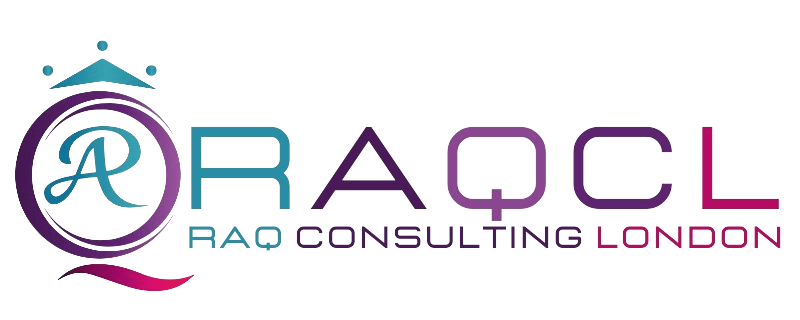Understanding Ethical Hacking
Ethical hacking, also known as penetration testing or white-hat hacking, refers to the practice of deliberately probing and assessing systems, networks, and applications for security weaknesses. Unlike malicious hackers, who exploit these vulnerabilities for personal gain, ethical hackers work with the permission of the system owners to identify and rectify vulnerabilities before they can be exploited by cybercriminals. This proactive approach is essential for enhancing cybersecurity measures and safeguarding sensitive information.
The primary objective of ethical hacking is to improve the security posture of an organization. By simulating real-world attacks, ethical hackers can discover weaknesses in an organization’s defenses and help implement strategies to mitigate risks. This process not only protects data and systems but also contributes to overall organizational resilience against cyber threats. Moreover, ethical hackers often provide detailed reports outlining identified vulnerabilities, potential impact assessments, and recommendations for remediation, thus playing a crucial role in the cybersecurity lifecycle.
There are various types of ethical hacking practices that students should be aware of, each serving different purposes within cybersecurity. Penetration testing aims to simulate attacks on systems to identify vulnerabilities before they can be exploited. Security assessments involve a comprehensive evaluation of an organization’s security policies, technologies, and implementations. Vulnerability assessments focus specifically on identifying and classifying security weaknesses in systems or applications. Collectively, these practices provide a multi-faceted approach to securing information systems and establishing strong cybersecurity foundations.
Ultimately, as cybersecurity threats continue to evolve, the role of ethical hackers becomes increasingly important. They are essential in bridging the gap between system vulnerabilities and effective defenses. For students entering this field, understanding the scope and significance of ethical hacking is vital, as it sets the stage for effective career development and impactful contribution to cybersecurity.
Essential Skills and Knowledge for Aspiring Ethical Hackers
For students eager to enter the field of cybersecurity, acquiring a robust foundation in essential skills and knowledge is paramount. Ethical hacking requires a comprehensive understanding of multiple, interconnected disciplines. First and foremost, an in-depth grasp of networking principles is essential. This includes the ability to configure, manage, and troubleshoot different networking devices and protocols. Proficiency in networking not only helps in understanding how systems communicate but also equips aspiring ethical hackers to identify vulnerabilities.
Additionally, familiarity with operating systems, particularly Linux and Windows, is crucial for comprehensive system analysis. Each operating system has its unique security mechanisms, and being well-versed in their respective idiosyncrasies enables ethical hackers to conduct more effective assessments. Furthermore, programming knowledge is a significant asset in this field. Proficiency in languages such as Python, Java, or C++ can facilitate the automation of tasks and allow hackers to create or tweak security tools tailored to specific requirements.
Moreover, students should pay attention to web technologies as well. Understanding how web applications function, including knowledge of HTML, CSS, JavaScript, and server-side languages, is vital for identifying security flaws. Equally important is the development of skills in social engineering, where ethical hackers must understand human behavior to prevent exploitation. In addition, knowledge of cryptography is critical as it forms the bedrock for data protection strategies.
Lastly, becoming conversant with various security tools and software is essential for any aspiring ethical hacker. Tools like Wireshark, Metasploit, and Nmap are indispensable for conducting thorough security audits. Self-study resources, formal education, and hands-on experience through internships or cybersecurity competitions can all play a vital role in gaining these skills effectively.
Resources and Tools for Learning Ethical Hacking
As aspiring ethical hackers embark on their cybersecurity journey, a well-structured approach involving an array of resources and tools is essential. Numerous online platforms offer comprehensive courses tailored for beginners. Websites such as Coursera, Udemy, and edX provide courses specifically in ethical hacking, covering foundational concepts, techniques, and real-world applications. Additionally, renowned certifications like CompTIA Security+, Certified Ethical Hacker (CEH), and Offensive Security Certified Professional (OSCP) are available, presenting a robust way to validate skills and knowledge.
Books also serve as excellent resources for those interested in ethical hacking. Titles such as “The Web Application Hacker’s Handbook” by Dafydd Stuttard and “Hacking: The Art of Exploitation” by Jon Erickson delve into various aspects of cybersecurity. These resources not only offer theoretical understanding but also provide practical exercises that build competence in real-world scenarios.
In addition to educational material, mastering specific tools is crucial for ethical hackers. Tools like Wireshark for network analysis, Metasploit for penetration testing, and Nmap for network discovery are widely used in the industry. Understanding how to operate these tools can enhance practical skills significantly. Free versions or trial periods are commonly available, allowing students to practice without significant financial commitment.
Hands-on experience is indispensable in the ethical hacking domain. Platforms such as Hack The Box and TryHackMe offer practical challenges and labs that allow users to apply theoretical knowledge in controlled environments. Participating in Capture the Flag (CTF) competitions also provides valuable experience. Students can test and refine their skills while engaging with a community of like-minded individuals.
Utilizing these resources and tools can significantly accelerate a student’s path to becoming a competent ethical hacker. By combining formal education with practical application, learners can effectively prepare for careers in the cybersecurity field.
Building a Career in Ethical Hacking
As the demand for cybersecurity professionals continues to rise, students interested in ethical hacking can find numerous pathways to build a successful career in this field. One of the primary roles within ethical hacking is a penetration tester, who is responsible for simulating cyberattacks to identify vulnerabilities in systems and networks. This position typically requires strong technical skills along with an understanding of various hacking methodologies. Another promising avenue is that of a security consultant, where professionals assess an organization’s security policies and practices, providing actionable recommendations. Furthermore, incident responders play a crucial role in addressing and mitigating security breaches, making this role vital for organizations looking to secure their data effectively.
According to recent labor market data, the job outlook for cybersecurity roles, including ethical hackers, remains robust. As organizations increasingly allocate budgets towards cybersecurity measures, the need for skilled professionals will undoubtedly grow. For those aspiring to enter this field, networking within the cybersecurity community is essential. Engaging with industry professionals through conferences, online forums, and local meetups can present invaluable opportunities for growth and collaboration. Creating a strong portfolio that showcases your methodologies, past projects, and any relevant certifications will also significantly enhance your employability.
Before attending job interviews, candidates should invest time in preparing thoroughly. Familiarize yourself with common interview questions in the ethical hacking domain and practice relevant skills through hands-on challenges. Continuous learning is vital in this rapidly evolving field. Keeping abreast of the latest trends, tools, and technologies will not only enhance your skillset but also demonstrate your dedication to potential employers. In conclusion, by strategically building experience, maintaining professional connections, and staying informed on industry developments, students can effectively launch a rewarding career in ethical hacking.



